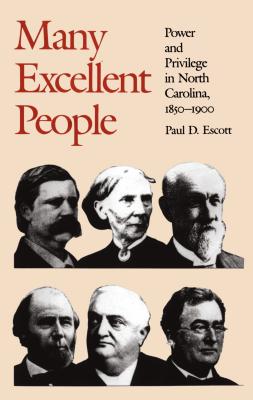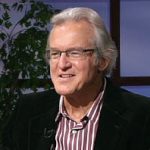

 University of North Carolina Press
University of North Carolina Press
Many Excellent People: Power and Privilege in North Carolina, 1850-1900


Key Metrics
- Paul D Escott
- University of North Carolina Press
- Paperback
- 9780807842287
- 8.9 X 5.9 X 1.1 inches
- 1.1 pounds
- Social Science > Anthropology - Cultural & Social
- English
 Secure Transaction
Secure TransactionBook Description
Working within the new social history and using detailed analyses of five representative counties, wartime violence, Ku Klux Klan membership, stock-law legislation, and textile mill records, Escott reaches telling conclusions on the interplay of race, class, and politics. Despite fundamental political and economic reforms, Escott argues, North Carolina's social system remained as hierarchical and undemocratic in 1900 as it had been in 1850.
Author Bio
Paul D. Escott earned his B.A. degree cum laude from Harvard College and his Master’s and Ph.D. degrees from Duke University. He taught at UNC Charlotte before coming to Wake Forest, where he served for nine years as Dean of the College.
He is a member of Phi Beta Kappa, has received fellowships from the Whitney Young, Jr., Foundation and the Rockefeller Foundation, and twice won an award for the best non-fiction book published by a resident of North Carolina.
His most recent book is Lincoln’s Dilemma: Blair, Sumner, and the Republican Struggle over Racism and Equality in the Civil War Era.
He comments: “The history of the Civil War Era looms large in our nation’s struggles to overcome racism and realize its ideals of freedom and equality. Even today popular culture misrepresents the reality of the Civil War era in ways that obscure our understanding of our society’s past. Excessive glorification of the Confederacy or the Union can blind us to the nature of the problems that the United States has had to surmount or struggles with still.”
- Education
- B.A. Harvard College 1969
M.A. Duke University 1972
Ph.D. Duke University 1974
Source: Wake Forest University
Videos
No Videos
Community reviews
Write a ReviewNo Community reviews